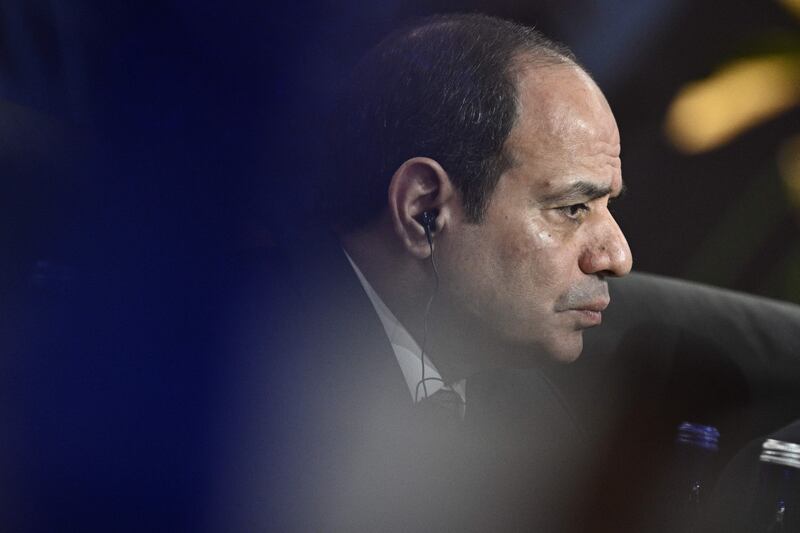A much-heralded national dialogue to map out Egypt’s political future, which has been called a founding stone of a “new republic”, will begin on May 3, organisers said late on Sunday night.
The dialogue was first called by President Abdel Fattah El Sisi in April last year, but organisers have said extensive preparatory work and a host of distractions, including the nation’s deep economic crisis and hosting last November’s UN climate summit, delayed its launch.
The dialogue’s council of trustees said the gathering could not start before May 3 because of Ramadan, which began on Thursday, the Muslim feast of Eid Al Fitr that follows and next month's Easter celebrations by the country’s large Christian community.
The National reported on February 24 that the dialogue would start after Ramadan.
The dialogue has been a central part of a significant policy shift that saw the Egyptian leader ease his government’s grip on the country, release hundreds of critics held in pre-trial detention and allow further freedoms.
But the wave of optimism and expectations that greeted the call for dialogue have since faded, with the nation’s attention pulled away from the need for political reform to the grinding economic crisis chiefly caused by the Russia-Ukraine war.
The crisis has affected most Egyptians, forcing millions to struggle daily to make ends meet with soaring food prices.
It also has led to the local currency losing almost half of its value and a crippling foreign currency shortage that greatly reduced vital imports, including industrial materials.
The dialogue’s discussions will be focused on political, social and economic issues.
It will conclude with non-binding, policy recommendations that will be sent to Mr El Sisi, who will then decide which ones should be adopted. It is not clear how long the dialogue will last.
Already, the board of trustees issued a recommendation on Sunday night to extend the judiciary’s supervision of voting beyond the 10 years provided for in the country’s 2014 Constitution.
The 10-year period expires in January 2024, months before presidential elections are scheduled to be held. If accepted, the President will ask parliament to issue a legislation based on the recommendation.
Mr El Sisi has said he would attend some of the dialogue’s panel discussions late in the process.
He has said that suppressing freedoms was necessary in the early years of his eight-year rule when Egypt was rocked by a wave of terrorism after the removal of Mohammed Morsi in 2013 by the military, then led by Mr El Sisi.
Mr El Sisi was first elected to office in 2014. He won a second four-year term in 2018 but constitutional amendments later adopted in a referendum extended presidential terms from four to six years, although it kept the two-term cap.
A new clause tailor-made for Mr El Sisi allowed him to stay in office until 2024 when he can run for a second six-year term.







